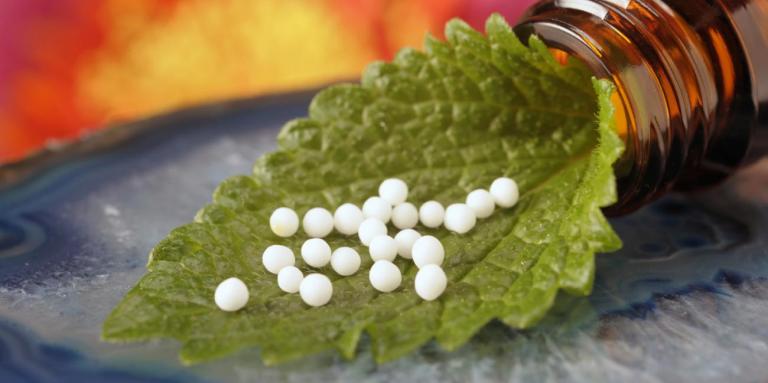For short term conditions that come on quickly such as ear infections, bee stings or the common cold to chronic conditions such as arthritis or insomnia, homeopathic medicines are recommended by more than 100,000 physicians and used in 85 countries.
Originating in Europe more than 200 years ago and amassing a history for safety, these over-the-counter drugs offer many advantages. They work safely and naturally without causing side effects and do not interact with conventional medications or herbal remedies, allowing you to complement other treatments. There’s no risk of overdosing.
Homeopathic medicines are regulated as drugs, not dietary supplements, by the U.S. Food and Drug Administration (FDA)1 and are clearly labeled for specific indications. They are manufactured according to the highest standards, complying with specifications of the Homeopathic Pharmacopoeia of the United States (HPUS) and Drug Good Manufacturing Practices (GMP).
Homeopathic medicines use natural substances in micro-doses to relieve symptoms by stimulating the natural ability of the body to rebalance and heal itself.
For example, take Allium cepa, a homeopathic preparation of an onion. What happens when you cut up an onion? You might sneeze a few times and your eyes and nose may become watery or start to burn. When diluted homeopathically, Allium cepa can treat these very same symptoms; therefore, it is commonly prescribed at the start of a cold or bout of hay fever.
As with many treatments, the exact mechanism of action in homeopathic medicines is not known. However, clinical research is providing evidence of the efficacy of homeopathic medicines, and basic laboratory research is confirming the biological activity of highly diluted substances and helping the scientific community to better understand their mechanism of action.
Parents can take comfort that homeopathic medicines do not contain any of the ingredients questioned by the FDA for young children. An FDA panel questioned the safety and efficacy of decongestants, antihistamines and cough suppressants in children younger than 6 years of age. While the FDA takes time to investigate how these ingredients affect children of all ages, manufacturers of these products have voluntarily relabeled the medications, instructing parents not to use them in children younger than 4 years of age. Homeopathy fills a void for safe cough, cold, flu and allergy treatment options for little bodies.
Instead of working against the body as a suppressant, a homeopathic cough syrup, like Children’s Chestal® for example, acts as an expectorant, helping the body do what it does best to help itself. That’s why it’s not dangerous to combine homeopathic medicines with other substances, in case parents decide to administer a cold medicine on top of cough syrup.
During flu season, it’s important to have a homeopathic medicine like Oscillococcinum® on hand in the family medicine cabinet. Oscillo® is one of the most popular homeopathic medicines worldwide. It can be used in children over age two to seniors. Clinical studies show that it shortens both the duration and the severity of flu-like symptoms such as headache, body aches, chills and fever.
The sooner you start treating flu-like symptoms, the better chance you have for a quicker recovery. Oscillo should be taken when you start to feel run-down and achy. You can find it easily at your local supermarket, pharmacy or drugstore.
Homeopathic medicines are available in different forms, just like their traditional counterparts. You can find them in pellets, tablets, gels, ointments and creams, syrups, eye drops, and suppositories. They are available in natural product supermarkets, health food stores and independent pharmacies.

